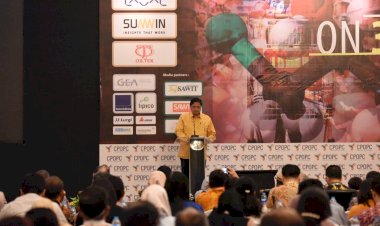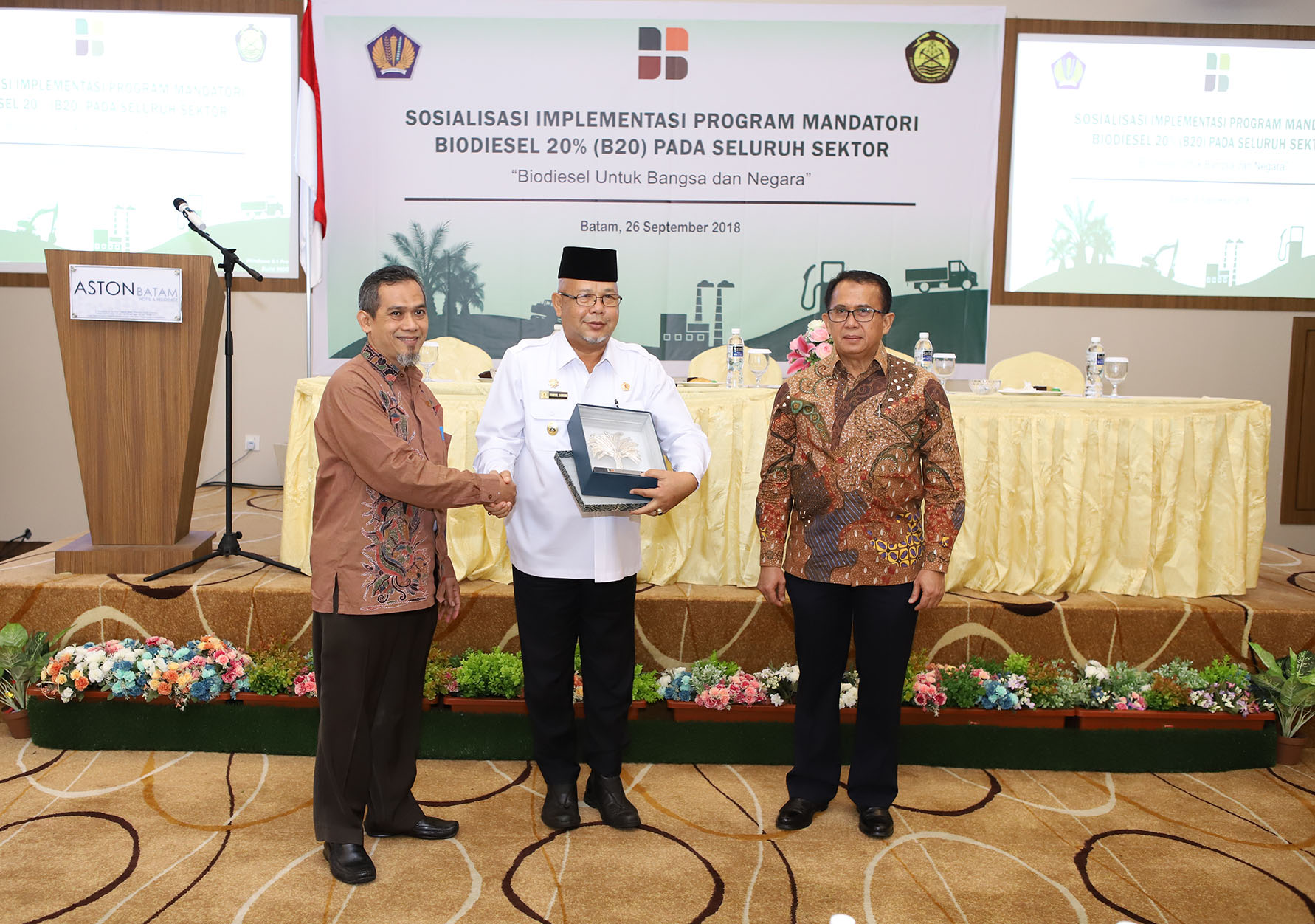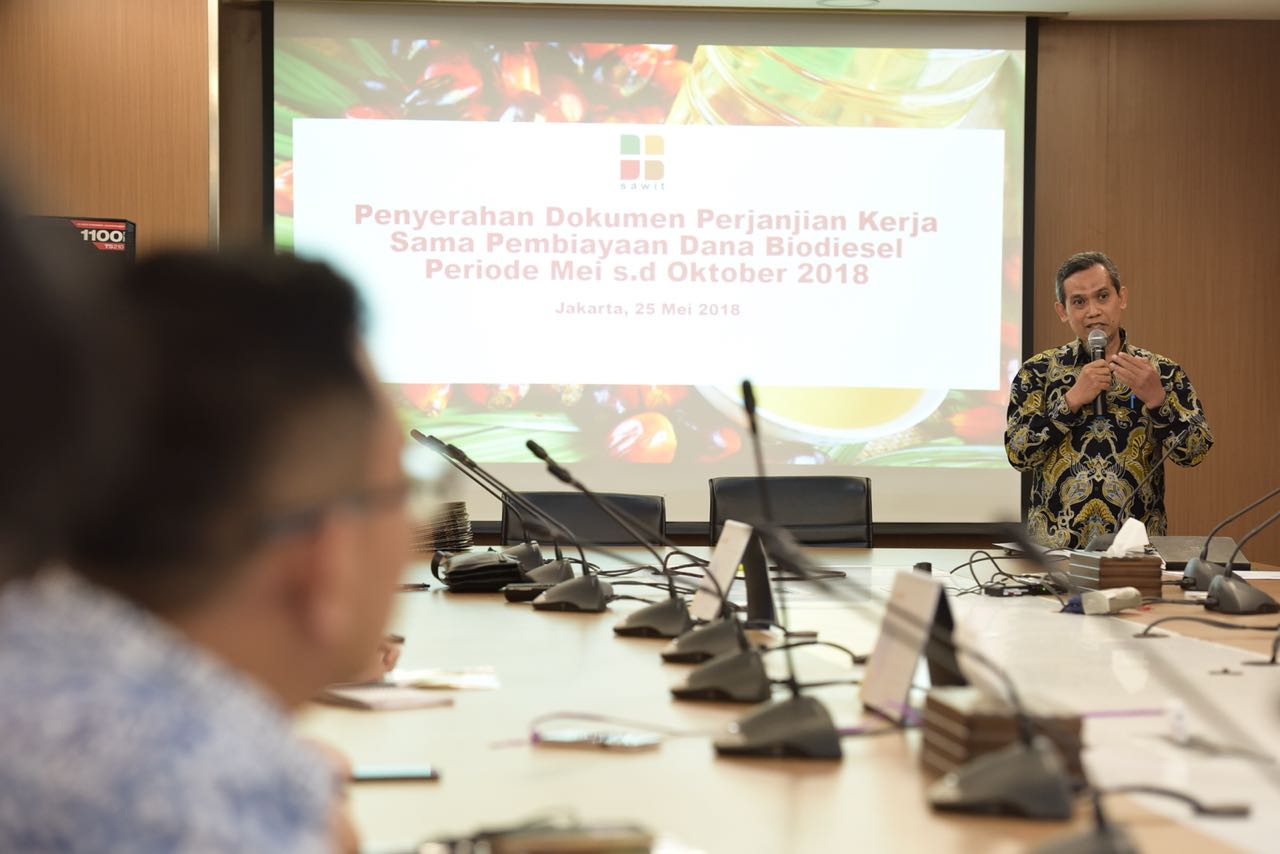Finance Minister Appoints Eddy Abdurrachman as BPDPKS President Director
Indonesia’s Finance Minister Sri Mulyani Indrawati has appointed Eddy Abdurrachman as the new President Director of the Indonesia Oil Palm Plantations Fund Management Agency (BPDPKS), replacing Dono Boestami.
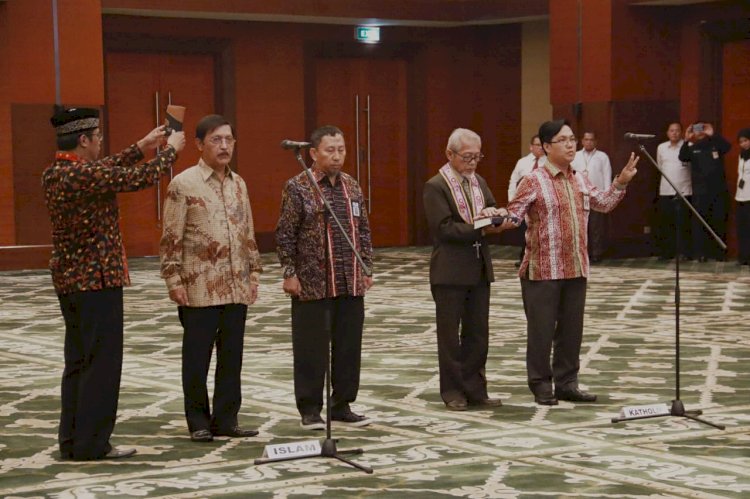
JAKARTA—Indonesia’s Finance Minister Sri Mulyani Indrawati has appointed Eddy Abdurrachman as the new President Director of the Indonesia Oil Palm Plantations Fund Management Agency (BPDPKS), replacing Dono Boestami.
Oath-taking ceremony was held at Mezzanine Room, Ministry of Finance, Monday (2/3/2020). Minister of Finance has also appointed Zaid Burhan Ibrahim as BPDPKS’ Director of Finance, General, and Risk Management; and Nugroho Adi Wibowo as BPDPKS’ Head of Biodiesel Development Division.
BPDPKS is a Public Service Agency under the Ministry of Finance, responsible for managing palm oil fund in order to maintain continuity in palm oil industry.
Sri Mulyani told Eddy Abdurrachman that the job as President Director of BPDPKS carried a lot of responsibility and full of challenges.
“Today, Indonesia is the largest palm oil producer in the world, providing 55 percent of the world’s supply. Palm oil industry has become Indonesia’s top foreign exchange reserves contributor, contributing USD22.3 billion or 13.5 percent of non oil and gas total export. The industry has also moved the country toward greater energy independence by replacing fossil fuels with renewable energy generated from palm oil. By adopting biodiesel 30 percent (B30) mix program, the industry has played its role in saving foreign exchange reserves by cutting down diesel fuel import to USD8 billion per year,” Sri Mulyani said in a statement on Monday, (2/3/2020).
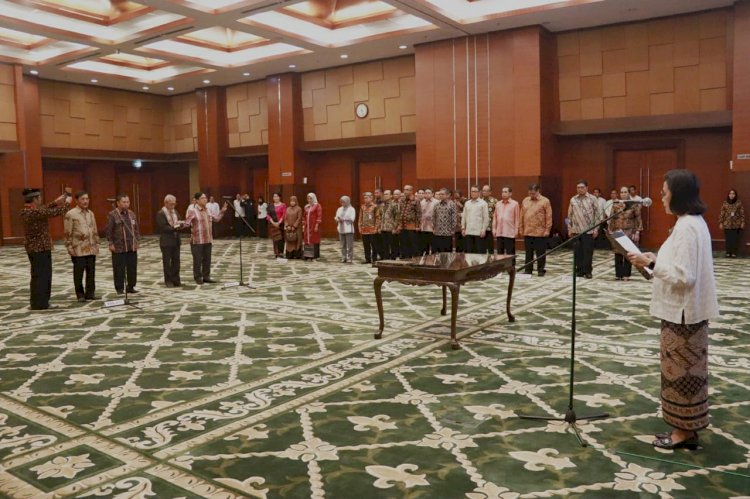
In 2019, palm oil industry was under pressure where CPO prices fell below their economic price. It affected fruit fresh bunches (FFB) prices at farmers’ level, compelling the government to suspend export levies imposed on palm oil and its derivative products to ease the financial burden on palm oil producers.
Other than that, in an effort to reduce CPO stockpiles, the government has implemented B30 program since 1 January 2020 as an instrument of price stabilization. The program has succeeded in increasing the prices above their economic price. “Currently, CPO price is above USD750 per ton and CPO export levy is imposed again as the price is above the upper level.”
Sri Mulyani told that the agency needed to monitor the global slowdown as the impact of COVID-19 to CPO prices, especially to China as the second largest importer of Indonesian CPO.
The Finance Minister also reminded BPDPKS to keep the agency accountable. "I hope that Eddy Abdurrachman with his previous experience as the customs and excise directorate general and the secretary of the Coordinating Economy Ministry can use BPDPKS funds for programs that are in line with building a sustainable industry,” she said.
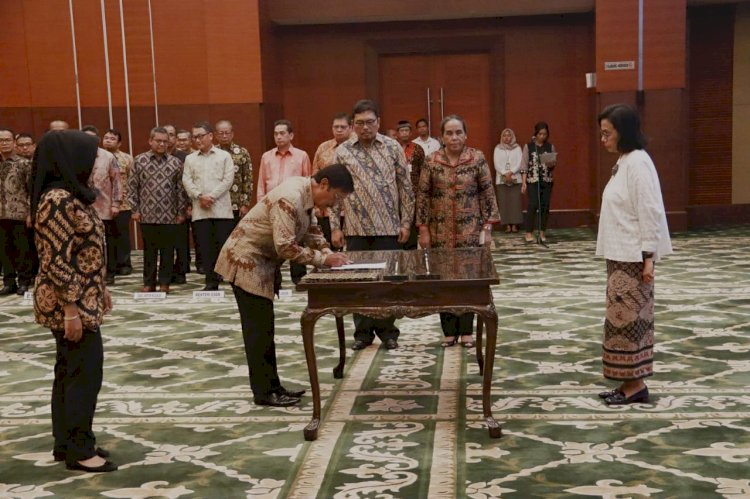
She also reminded the agency about the oil palm tree replanting program which is one of BPDPKS’ prime objective in managing palm oil fund. “According to the President's direction, the palm oil replanting program must be carried out for 500,000 hectares within the next three years. I want replanting to be the focus of BPDPKS.”
She suggested BPDPKS partner with the microcredit program (KUR) to strengthen palm oil replanting financing. Currently, the government has simplified requirements in oil palm tree replanting program from 14 to eight terms. Afterwards, according to BPDPKS Steering Committee’s direction, the requirements have been simplified again to only two terms.
The minister expected the agency to accelerate the replanting process with the support of various parties. “Accelerating replanting process can improve plantations’ productivity and increase farmers livelihood. The success of replanting program will keep B30 raw materials available at lower price. Furthermore, it will increase supplies to expand green fuels production to help Indonesia achieves national energy independence.” (Source: Press Release, Finance Ministry)


